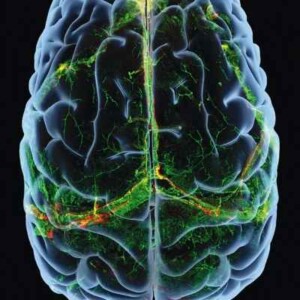In this episode:
01:28 Inflammation’s role in memoryHow memories are stored is an ongoing question in neuroscience. Now researchers have found an inflammatory pathway that responds to DNA damage in neurons has a key role in the persistence of memories. How this pathway helps memories persist is unclear, but the researchers suggest that how the DNA damage is repaired may play a role. As inflammation in the brain is often associated with disease, the team were surprised by this finding, which they hope will help uncover ways to better preserve our memories, especially in the face of neurodegenerative disorders.
Research Article: Jovasevic et al.
News and Views: Innate immunity in neurons makes memories persist
08:40 Research Highlights
The effect of wind turbines on property values, and how waste wood can be used to 3D print new wooden objects.
Research Highlight: A view of wind turbines drives down home values — but only briefly
Research Highlight: Squeeze, freeze, bake: how to make 3D-printed wood that mimics the real thing
11:14 How melting ice is affecting global timekeeping
Due to variations in the speed of Earth’s rotation, the length of a day is rarely exactly 24 hours. By calculating the strength of the different factors affecting this, a researcher has shown that while Earth’s rotation is overall speeding up, this effect is being tempered by the melting of the polar ice caps. As global time kept by atomic clocks occasionally has to be altered to match Earth’s rotation, human-induced climate change may delay plans to add a negative leap-second to ensure the two align.
Research article: Agnew
News and Views: Melting ice solves leap-second problem — for now
20:04 Briefing Chat
An AI for antibody development, and the plans for the upcoming Simons observatory.
Nature News: ‘A landmark moment’: scientists use AI to design antibodies from scratch
Nature News: ‘Best view ever’: observatory will map Big Bang’s afterglow in new detail
Subscribe to Nature Briefing, an unmissable daily round-up of science news, opinion and analysis free in your inbox every weekday.
Subscribe to Nature Briefing: AI and robotics
Hosted on Acast. See acast.com/privacy for more information.
More Episodes
07 June 2018: Magnetic animal migration, cold enzymes, and mouse memory
 2018-06-06
2018-06-06
31 May 2018: Boosting diversity in physics, and life after an asteroid impact
 2018-05-30
2018-05-30
24 May 2018: Climate costs, cleverer cab journeys, and peering through matter with muons
 2018-05-23
2018-05-23
17 May 2018: Probing the proton, research misconduct, and making sense of mystery genes
 2018-05-16
2018-05-16
10 May 2018: AI neuroscience, liquid crystals, and depression in academia
 2018-05-09
2018-05-09
03 May 2018: Building early embryos, the fear response in mice, and ancient rhino remains
 2018-05-02
2018-05-02
26 April 2018: Mini brains, and an updated enzyme image
 2018-04-25
2018-04-25
Backchat April 2018: Sexual harassment, social media, and celebrity scientists
 2018-04-20
2018-04-20
19 April 2018: Synchronised shrimp, supernova science, and spring books.
 2018-04-18
2018-04-18
12 April 2018: The power of remote sensing, and watching a neutron star glitch
 2018-04-11
2018-04-11
05 April 2018: Human's influence on the Mississippi and 'dirty' mice
 2018-04-04
2018-04-04
29 March 2018: AI in chemistry, and liquid droplets in living cells.
 2018-03-28
2018-03-28
22 March 2018: Mexican cavefish, the gut microbiome, and a wearable brain scanner.
 2018-03-21
2018-03-21
15 March 2018: Geoengineering Antarctica and increasing NMR’s resolution.
 2018-03-14
2018-03-14
8 March 2018: Surprising graphene superconductors, and 50 years dreaming of electric sheep.
 2018-03-07
2018-03-07
1 March 2018: Brain waves and a fingerprint from the early Universe
 2018-02-28
2018-02-28
Backchat February 2018: Luck, debate, and the quantum internet
 2018-02-23
2018-02-23
22 February 2018: A focus on adolescence
 2018-02-21
2018-02-21
15 February 2018: Optical clocks, healthy ageing, and fieldwork during pregnancy
 2018-02-14
2018-02-14
08 February 2018: Tough timber, magpie intelligence, and invasive crayfish
 2018-02-07
2018-02-07
Create your
podcast in
minutes
- Full-featured podcast site
- Unlimited storage and bandwidth
- Comprehensive podcast stats
- Distribute to Apple Podcasts, Spotify, and more
- Make money with your podcast
It is Free
- Privacy Policy
- Cookie Policy
- Terms of Use
- Consent Preferences
- Copyright © 2015-2024 Podbean.com



 iOS
iOS Android
Android


